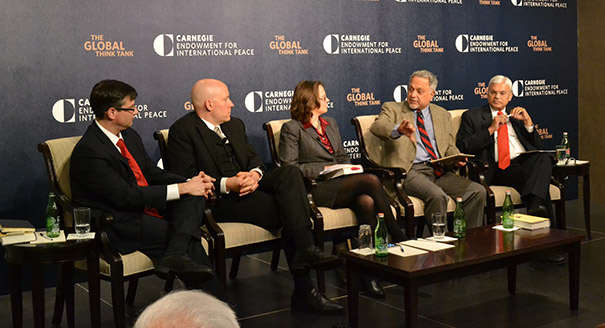Registration
You will receive an email confirming your registration.
Since the economic liberalization of the early 1990s, India’s rise as a great power has been imagined either in terms of rapid economic growth and immense potential in the global market or its remarkable ‘soft power’—culture, tourism, frugal engineering, and the knowledge economy. However, there has been no serious exploration of the alternative path India can take to achieving great power status—a combination of hard power, geostrategics, and realpolitik. In his new book, Why India Is Not a Great Power (Yet), Bharat Karnad delves exclusively into these hard power aspects of India’s rise and the problems associated with them.
Karnad examined the deficits in the country’s military capabilities and in the ‘software’ related to hard power—absence of political vision and will, insensitivity to strategic geography, and unimaginative foreign and military policies—and how these shortfalls have prevented the country from achieving great-power status. Lisa Curtis, Daniel S. Markey, and Richard M. Rossow joined the discussion. Carnegie’s Ashley J. Tellis moderated.
Lisa Curtis
Lisa Curtis is a senior research fellow at The Heritage Foundation, where she analyzes America’s economic, security, and political relationships with India, Pakistan, Afghanistan and other nations of South Asia.
Bharat Karnad
Bharat Karnad is professor of National Security Studies at the Center for Policy Research (CPR) in New Delhi, India.
Daniel S. Markey
Daniel S. Markey is adjunct senior fellow for India, Pakistan, and South Asia at the Council on Foreign Relations (CFR), where he specializes in security and governance issues in South Asia.
Richard M. Rossow
Richard M. Rossow is a senior fellow and holds the Wadhwani Chair in U.S.-India Policy Studies at the Center for Strategic and International Studies (CSIS).
Ashley J. Tellis
Ashley J. Tellis is a senior associate at the Carnegie Endowment for International Peace specializing in international security, defense, and Asian strategic issues.
